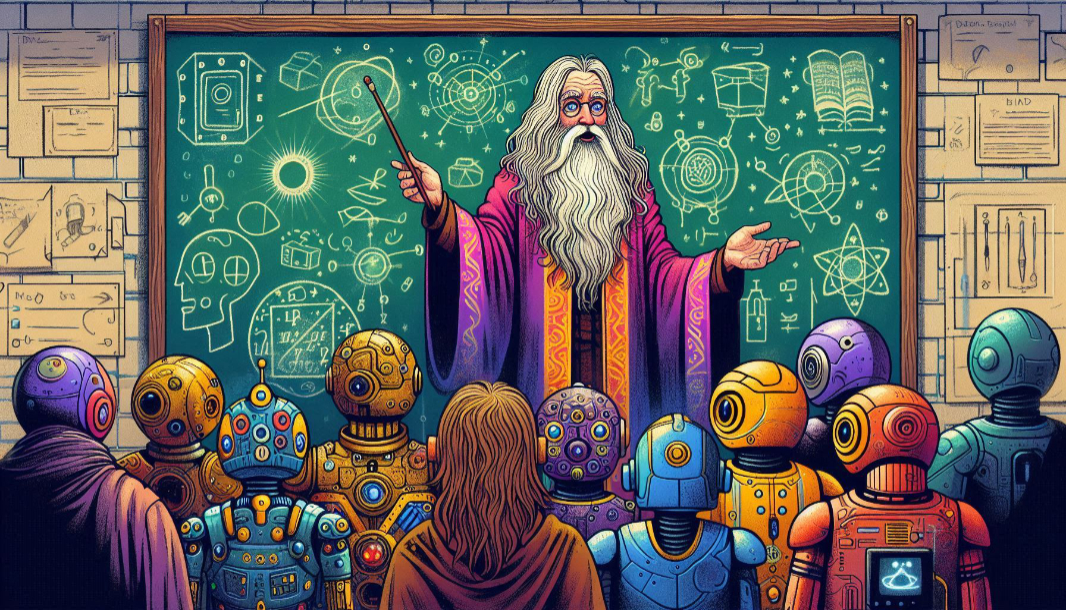
Sometime in my adolescent years, my mother burst into my room and excitedly blurted out that she had figured out what was wrong with her, issues we would now describe as mental illness. She was the adult child of an alcoholic, she told me, echoing one of the 1980’s many self-help mantras.
“Great,” I replied. “Now what are you going to do about it?”
Consumed by her epiphany, she wasn’t prepared for that question. But this was perhaps an early example of a pragmatism I had that my mother sadly still lacks. To me, it wasn’t enough to identify the problem. That was just the preamble to solving the problem.
Whether my mother identified her problem correctly is debatable, but it’s clear she never did solve it. I bring this story from my youth up here because I was reminded of it while reading Cory Doctorow’s excellent book Enshittification. It’s foundational to understanding what’s wrong with personal technology today, but if it falls short in any way, and it does, it’s that the book doesn’t help the reader solve the problems caused by Big Tech enshittification.
This is a failing Doctorow has acknowledged in recent interviews, and though it doesn’t detract from the work per se, the subtitle of this book is literally “Why everything suddenly got worse and what to do about it.” And I very much want to know what we can do about it.
Granted, I could effectively argue that this is, in many ways, my life’s work. People still think of me as the Windows guy, or at least a Windows guy. That’s fine, it’s a simple way to describe over 30 years of work. But I was always bothered by what I see as fundamental misunderstanding of what it is I’ve done and why. That is, I’m not here to support Microsoft or Windows, I’m not a cheerleader. I’m here to support the people who use Windows and other personal technology products and services.
That may seem like a subtle distinction, but it’s not. And while this has always been the case, that positioning has come into sharper focus in recent years as Windows, along with most of our industry, has steadily enshittified to the point that I barely recognize it anymore. In the early days, discovering more about a platform like Windows and sharing it with others was, to me, a way for all of us to become more of an expert in using the thing and wring more value out of it. But in this era, much of this work is really about fixing or working around the bad behaviors that Microsoft has built into the product, on purpose, with the understanding that these things undermine the experience for customers. And it’s not just Windows, of course. This disease is infecting all of Big Tech.
I can almost hear the obvious retort. So why not just leave if you hate it so much?
One of the many things that Doctorow gets right in the Enshittification book is that voting with our wallets doesn’t work. That’s a fool’s errand, if the goal is to hurt Microsoft or whatever other Big Tech company that turned something great into what he describes as a “steaming pile of shit.” Obviously, I am not going to hurt Big Tech by choosing alternatives. But less obviously, we aren’t going to collectively hurt these companies as a group either. The very point of enshittification is that Big Tech is so big and powerful that our needs don’t matter, and it makes financial sense for them to harm us even when we are paying for the product.
Doctorow identifies antitrust regulation as the only force powerful enough to unwind enshittification, noting that “antitrust exists to prevent this apathy and force companies to care.” I’m on board with that. And it is a coincidence of history that we live in an era in which antitrust regulators have woken from a decades-long period of inactivity and are finally taking on the most egregious behaviors by Big Tech’s biggest abusers and notching some important victories on our behalf.
That’s great and we should applaud each time Big Tech is pushed down a peg to our collective benefit. But just as waiting for someone else to “solve” mental illness isn’t a viable alternative for one suffering from it, and certainly wouldn’t have helped my mother, we all have personal agency when it comes to the personal technology we use. We can take action on our own behalf, and we can do what’s right for us. Individually, but also for anyone else we care about.
In other words, while we can’t hurt Microsoft or any other Big Tech abusers, we can help ourselves. We can fix or work around the problems we experience, and do so to improve our lives. We can and should do this selfishly, it’s not like Big Tech cares at all about us as customers, users, or human beings. Pretending otherwise, or, worse, being fooled by particularly effective marketing, is beyond counterproductive. At some point, these fools, well-meaning or not, become part of the problem. But this is the time to think clearly, now more than ever.
I have so much to say on this topic. Too much. I wish this didn’t become such a focus.
But I’ve become almost radicalized this past year as I’ve watched the Great Enshittening take away more and more value from the things I care about the most in this part of my life. I guess that’s how it usually happens, we’re all reactionary to some degree. But our industry sucks, and it sucks because of a small group of the world’s largest and most powerful companies.
And so this conversation will continue. It’s ease to identify the problems in this industry. But it’s up to solve those problems for ourselves.
